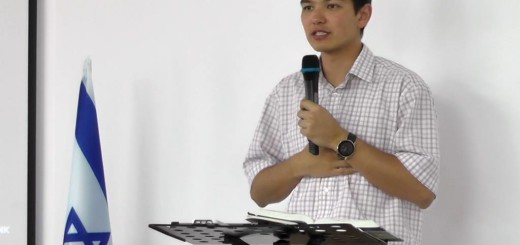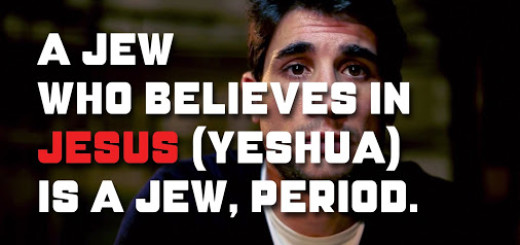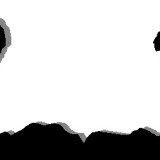THE PATH OF PURIFICATION
 “He is a voice shouting in the wilderness, ‘Prepare the way for the Lord’s coming! Clear the road for him!” (Mark 1:3 NLT)
“He is a voice shouting in the wilderness, ‘Prepare the way for the Lord’s coming! Clear the road for him!” (Mark 1:3 NLT)
The purpose of the war between the Maccabees and the Epiphanies was the sanctification of the Temple on the Temple Mount.
God’s purpose today hasn’t changed either; it is directed on the purification of our hearts, through the sacrifice of the Son of God – Yeshua.
The New Testament writings from the books of Matthew, Mark and John cite the prophets Isaiah
and Malachi, saying the following about purification, “…Repent of your sins and turn to God, for the Kingdom of Heaven is near… Prepare the way for the Lord’s coming! Clear the road for him… Prove by the way you live that you have repented of your sins and turned to God…He will baptize you with the Holy Spirit and with fire. He is ready to separate the chaff from the wheat with his winnowing fork. Then he will clean up the threshing area, gathering the wheat into his barn but burning the chaff with never-ending fire.…” Matthew 3; “Prepare the way for the Lord’s coming! Clear the road for him!” Mark 1:3
The references of the prophets, Isaiah and Malachi, are used by the evangelists because they prophesied about Yeshua, “Look! I am sending my messenger, and he will prepare the way before me. Then the Lord you are seeking will suddenly come to his Temple. The messenger of the covenant, whom you look for so eagerly, is surely coming,” says the Lord of Heaven’s Armies. “But who will be able to endure it when he comes? Who will be able to stand and face him when he appears? For he will be like a blazing fire that refines metal, or like a strong soap that bleaches clothes. He will sit like a refiner of silver, burning away the dross. He will purify the Levites, refining them like gold and silver, so that they may once again offer acceptable sacrifices to the Lord. Then once more the Lord will accept the offerings brought to him by the people of Judah and Jerusalem, as he did in the past. “At that time I will put you on trial. I am eager to witness against all sorcerers and adulterers and liars. I will speak against those who cheat employees of their wages, who oppress widows and orphans, or who deprive the foreigners living among you of justice, for these people do not fear me,” says the Lord of Heaven’s Armies.” (Malachi 3:1-5)
God’s plans are go into the far future. God develops His plans and enforces them. History is not a random kaleidoscope of unrelated events, but a developing process, where, God, already, from the very beginning, sees the ultimate goal. We are found inside this “developing process” and that is why we can either help or hinder it. In a sense, it is great honor to be part of such a big design, but to see an ultimate finished goal is a huge advantage as well. Our lives would change dramatically, if we, instead of constantly seeking our pleasures, would do everything within our power to fulfill the will of the God. The quote brought up by Mark from the prophets is significant, “Look! I am sending my messenger, and he will prepare the way before me.” During the time of Malachi, these words sounded like a threat. Since the priests misconducted their duties: they brought animal sacrifices with physical defects and brought sacrifices that were considered unworthy, unclean and considered the service in the Temple as a boring duty. The messenger of the God, Yochanan (John), was to prepare the people to meet with the One, Who would come after Him; to cleanse the earth of a sin. The world is in need of purification, always; Seneca called Rome: “a bottomless pit of all evil”. Juvenal spoke of Rome saying it was like “a dirty drainpipe within which flows all the disgusting scum of all the Syrian and Achaean evil doings”. But Yeshua offered another life, the path of purification from sin and life according to the Torah.
Many people, having heard His call, followed Him. And, where His teaching is accepted, there is cleansing. Where the teaching of the Messiah is allowed, there, it purifies a communion from poison and makes its suitable for eternity. Yochanan came preaching the immersion of repentance. Jews were familiar with the ritual of ”washing” or the immersion into water. It is written about in Leviticus 11 — 15. A Jew immersed himself every day because he desecrated every day. Symbolically washing off and purifying was made an inseparable part of the Jewish traditions. The Gentiles were considered unclean, as they did not observe the law of immersion that is written about in the Jewish law. Therefore, when the gentile became a proselyte, that is, accepted the Jewish religion, he needed to pass through three steps:
1. undergo circumcision, as it was the distinctive sign of covenant with God;
2. an animal sacrifice had to be brought for him, because only blood could cleanse from sin;
3. And he had to go through the immersion – a symbol of purification from all defilement.
Immersing into water was familiar to Jews, but what was surprising was the fact that Yochanan
suggested the Jews should undergo the ritual of immersion, themselves; something that only gentiles should be doing. Yochanan revealed something major: to be the Jew by origin was not enough to inherit the Kingdom, it was necessary to also change the heart. Immersion was always connected with confession. When coming to God the person must confess his faith to three different individuals: the person should confess to himself. As a human, it is natural for us close our eyes to things we do not wish to see, and that means, first of all, to our sins. Someone told me a story about one person’s first step into grace. He looked at himself in the mirror one morning while shaving and suddenly said, “You are dirty small rat!” Apparently, he had reasons to call himself that. He had broken the barrier of blindness.
And since that day he started to change into a different person. The prodigal son, when leaving his home, thought of himself as a person with initiative and ambition. But before taking the first step in returning hime, he had to look at himself and say, “I will get up and go to my father, and will say to him, Father, I am no longer worthy of being called your son“ (Luke 15: 18,19). The hardest task for the person to do, is to see himself from the side, to see himself for who he really is, and to make the decision to change. The recognition of your sin is the first step to repentance and building the right relations with God. A person needs to confess to people who he has harmed. It is simply not enough to tell God that we repent of our sins if we don’t recognize our guilt in front of those who we have offended and hurt. Confessing to God is much easier than to people. But those who don’t humble themselves cannot be forgiven. A person must confess to God and then apologize to those he has offended. Forgiveness begins, where pride ends. When the person says, “I have sinned”, God says, “I forgive you”. Forgiveness is received by the one who kneels in sincere repentance and, being overcome with shame, says, “My God, be merciful to me, for I have sinned against You.” When we live according to our own selfish desires, indulging in the realization of our own selfish dreams and seeking our own privileges, we move away from our true calling and we lose the salvation. This is what the Lord says through Ezra: “You haven’t abandoned me; rather, you have abandoned yourselves, says the Lord.” (2 Esdras 1:27); you have thrown out your sacred clothing. You have stripped them off yourself. But the Lord wants to be glorified through your life. “…I will display my holiness through those who come near me. I will display my glory before all the people” (Leviticus 10:3)










